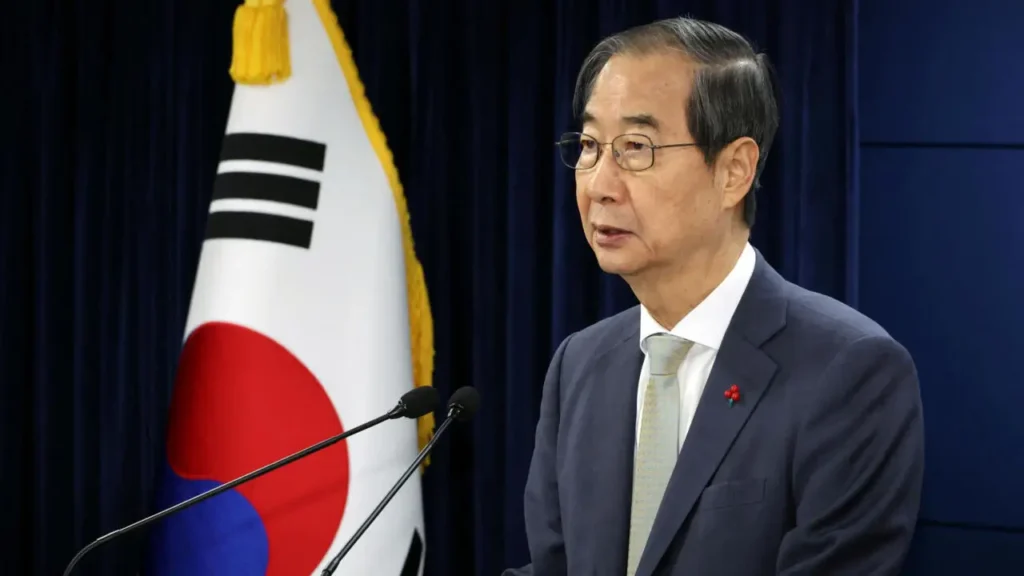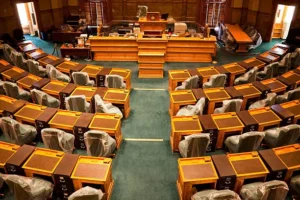South Korea’s political turmoil escalated Thursday as opposition lawmakers motioned to impeach Prime Minister Han Duck-soo. Less than two weeks after President President Yoon Suk Yeol’s impeachment, opposition parties have planned South Korea’s Prime Minister’s impeachment for allegedly defying democratic principles.
Han refused to appoint opposition-nominated constitutional court judges to decide Yoon’s fate. Democratic Party floor leader Park Chan-dae accused Han of betraying the constitution and labeled him an acting insurrectionist.
The motion comes as opposition leaders oppose Han’s decisions, including his vetoing bills proposing a special investigation into martial law declarations and corruption allegations.
The opposition contends Han enabled Yoon’s failed martial law on December 3rd. The impeachment vote could take place within the next 24 to 72 hours and requires the approval of 151 of 300 lawmakers.
The Democratic Party, holding 170 seats, is confident about securing the necessary votes. With opposition parties controlling 192 seats. Han faces immense political pressure. Han’s refusal to address crucial issues during cabinet meetings, including investigating Yoon and approving opposition bills, has intensified tensions.
Despite criticism, Han said his actions aimed to promote consensus between ruling and opposition leaders dismissed this, accusing Han of stalling and perpetuating political strife. South Korea’s Prime Minister’s impeachment highlights the nation’s deepening governance crisis.
If lawmakers oust Han, Finance Minister Choi Sang-mok would assume the role of caretaker President. This development coincides with the Constitutional Court’s deliberations on Yoons potential permanent removal.
Protestors have pledged to sustain their demonstrations against Yoon, demanding accountability for his alleged insurrection. Meanwhile, Yoon and several senior officials are being investigated regarding their roles in martial law planning. As South Korea’s political instability persists, tensions show no sign of easing.








